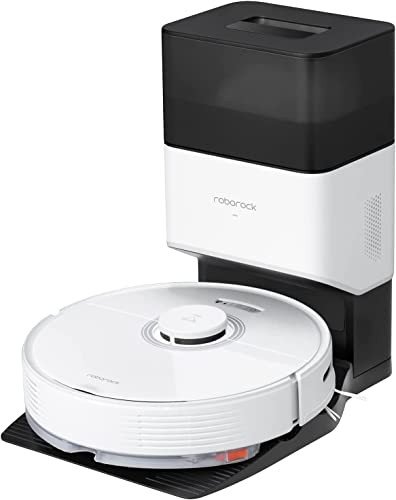How To Explain Autonomous Vacuum To Your Grandparents
The Rise of Autonomous Vacuums: Revolutionizing Home Cleaning
In the age of innovation, home tasks are ending up being increasingly automated, and among the most noteworthy advancements in this realm is the autonomous vacuum. These smart cleaning robotics are designed to alleviate the drudgery of standard vacuuming, making them popular among time-strapped households. This post checks out the advancement, performance, advantages, and restrictions of autonomous vacuums, together with a contrast of a few of the leading designs on the market today.
What is an Autonomous Vacuum?
An autonomous vacuum, also referred to as a robotic vacuum cleaner, is a little, automated device that browses through your home to tidy floorings without human intervention. Geared up with sensing units, cameras, and advanced software, these vacuums can spot obstacles, prevent stairs, and enhance cleaning courses. They normally run from a rechargeable battery, going back to their charging stations when their power is low or when cleaning jobs are finished.
Key Features of Autonomous Vacuums
Smart Navigation:
- Utilizes sensing units and algorithms to map the environment.
- Can browse complex layouts and avoid challenges.
Scheduling:
- Allows users to set cleaning times.
- Can operate when the house is empty, guaranteeing very little interruption.
Connection:
- Many designs link to Wi-Fi, enabling app control and integration with clever home systems.
- Users can customize settings, check cleaning status, and get notifications through mobile applications.
Suction Power:
- Varies in between models; some deal adjustable suction settings for different floor types.
- High-end designs feature powerful suction efficient in selecting up family pet hair and deep dirt.
Floor Type Adaptability:
- Capable of cleaning carpets, wood, tiles, and more.
- Specific models specialize in tailored cleaning for several surface areas.
The Advantages of Using Autonomous Vacuums
1. Time-Saving
One of the most considerable advantages of autonomous vacuums is the quantity of time they conserve. Rather than spending hours pressing a standard vacuum, property owners can set robotic vacuums to clean while they are engaged in other activities.
2. Consistent Cleaning Schedule
With the ability to schedule cleanings, these vacuums ensure that areas are frequently cleaned up, causing a cleaner home overall. best robotic hoover preserve indoor air quality, specifically for families with allergic reactions or asthma.
3. Smart Home Integration
Lots of autonomous vacuums can be integrated with wise home systems for smooth operation. House owners can manage their vacuums through voice commands through devices like Amazon Alexa or Google Assistant, improving user benefit.
4. Compact Design
The slim profile of these devices permits them to clean under furniture, such as couches and beds, where standard vacuums often can not reach.
5. Pet-Friendly
For family pet owners, autonomous vacuums can be a game-changer, as they are typically equipped with specialized functions for getting animal hair and dander, contributing to a cleaner home environment.
Limitations of Autonomous Vacuums
In spite of their lots of advantages, autonomous vacuums likewise have limitations:
1. Minimal Deep Cleaning
While these vacuums effectively preserve tidiness, they may not change the efficiency of a deep tidy offered by conventional vacuums, especially for greatly stained locations.
2. Capability Constraints
Many autonomous vacuums come with small dust bins that need to be cleared frequently, particularly in bigger homes or homes with family pets. This can be a hassle for some users.
3. Navigation Challenges
Although navigation innovation is continually improving, some designs may battle with specific layouts, particularly complex spaces with various challenges or very little rooms.
4. Rate Point
While costs have actually become more accessible, high-end models can still be rather costly, posing a barrier for some consumers.
Comparison of Top Autonomous Vacuum Models
Model
Smart Features
Battery Life
Suction Strength
Price Range
iRobot Roomba 980
App Control, Voice Assistant
120 minutes
1700 Pa
₤ 700 – ₤ 900
Roborock S6 MaxV
Advanced Mapping, Connectable
180 minutes
2500 Pa
₤ 600 – ₤ 800
Ecovacs Deebot Ozmo
Mopping, Smart Home
110 minutes
1500 Pa
₤ 450 – ₤ 700
Neato Botvac D7
Laser Navigation, Custom Zones
120 minutes
2000 Pa
₤ 800 – ₤ 900
Shark IQ Robot
Self-Emptying Base, Smart Map
90 minutes
1500 Pa
₤ 400 – ₤ 600
Significant Takeaways
- Smart Features: Consumers must prioritize models using robust clever features for convenience and performance.
- Battery Life: A longer battery life is helpful for bigger living areas.
- Suction Strength: Depending on home needs, varying suction power can substantially impact cleaning performance.
FAQs about Autonomous Vacuums
Q1: How do I preserve my autonomous vacuum?
A: Regular maintenance includes cleaning the brushes, clearing the dustbin, and looking for blockages. In addition, keeping the sensors clean will help keep navigation precision.
Q2: Can robotic vacuums tidy carpets and carpets?
A: Yes, numerous robotic vacuums are developed to efficiently tidy both hard surfaces and carpets. However, suction power may differ based upon the design.
Q3: Do robotic vacuums need Wi-Fi?
A: While lots of autonomous vacuums benefit from Wi-Fi connection for app control and updates, some models can operate individually without a cordless connection.
Q4: How typically should I run my robotic vacuum?
A: It depends upon your living situation, however running it a number of times a week is frequently suggested, specifically for homes with family pets.
In conclusion, autonomous vacuums represent a significant development in home cleaning innovation, promising convenience and effectiveness. While these devices may not totally replace standard vacuum cleaners, they are unquestionably useful in keeping a tidy living environment. As innovation continues to evolve, the future of home cleaning looks appealing, and these devices are at the leading edge of the revolution.
